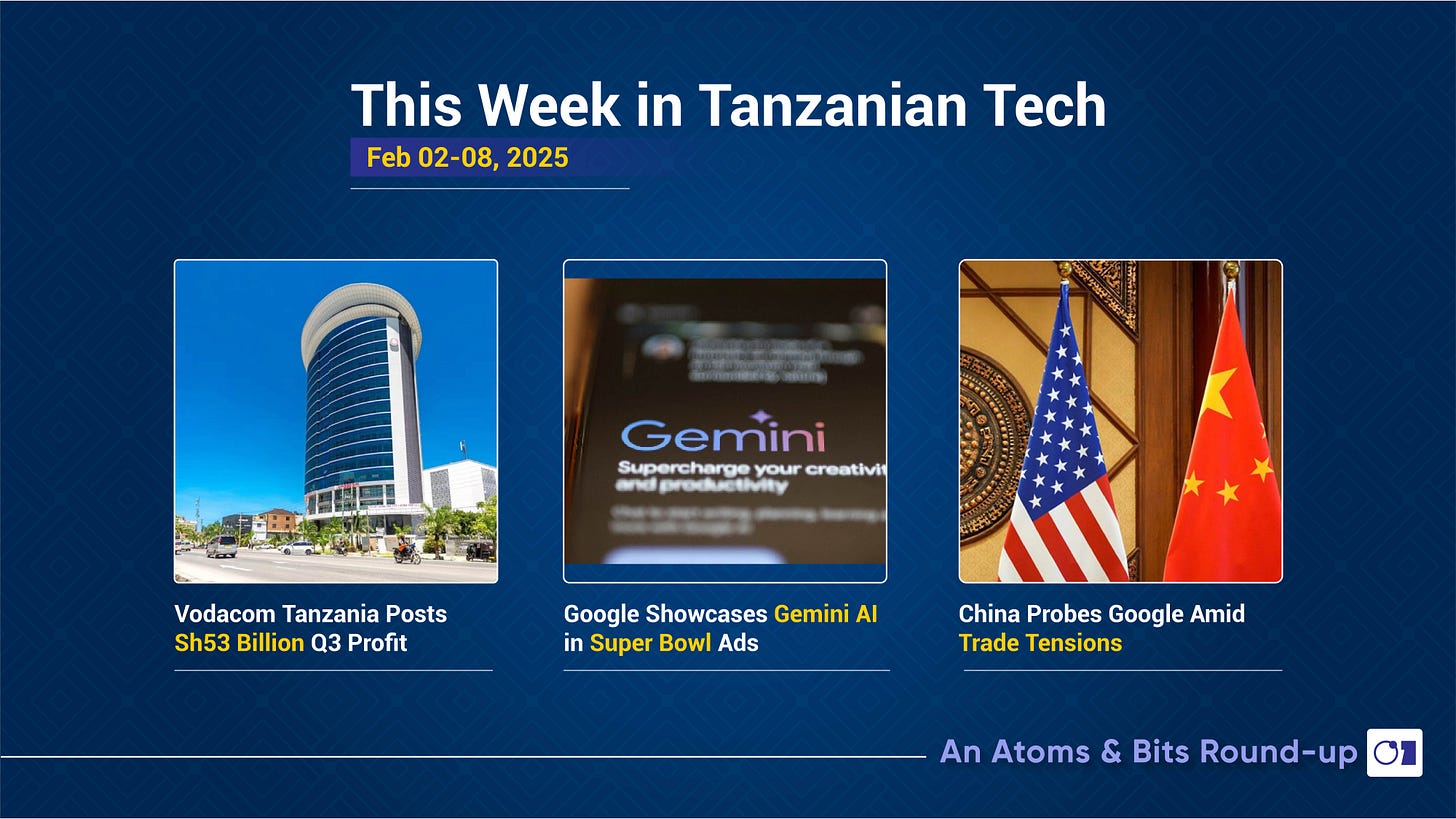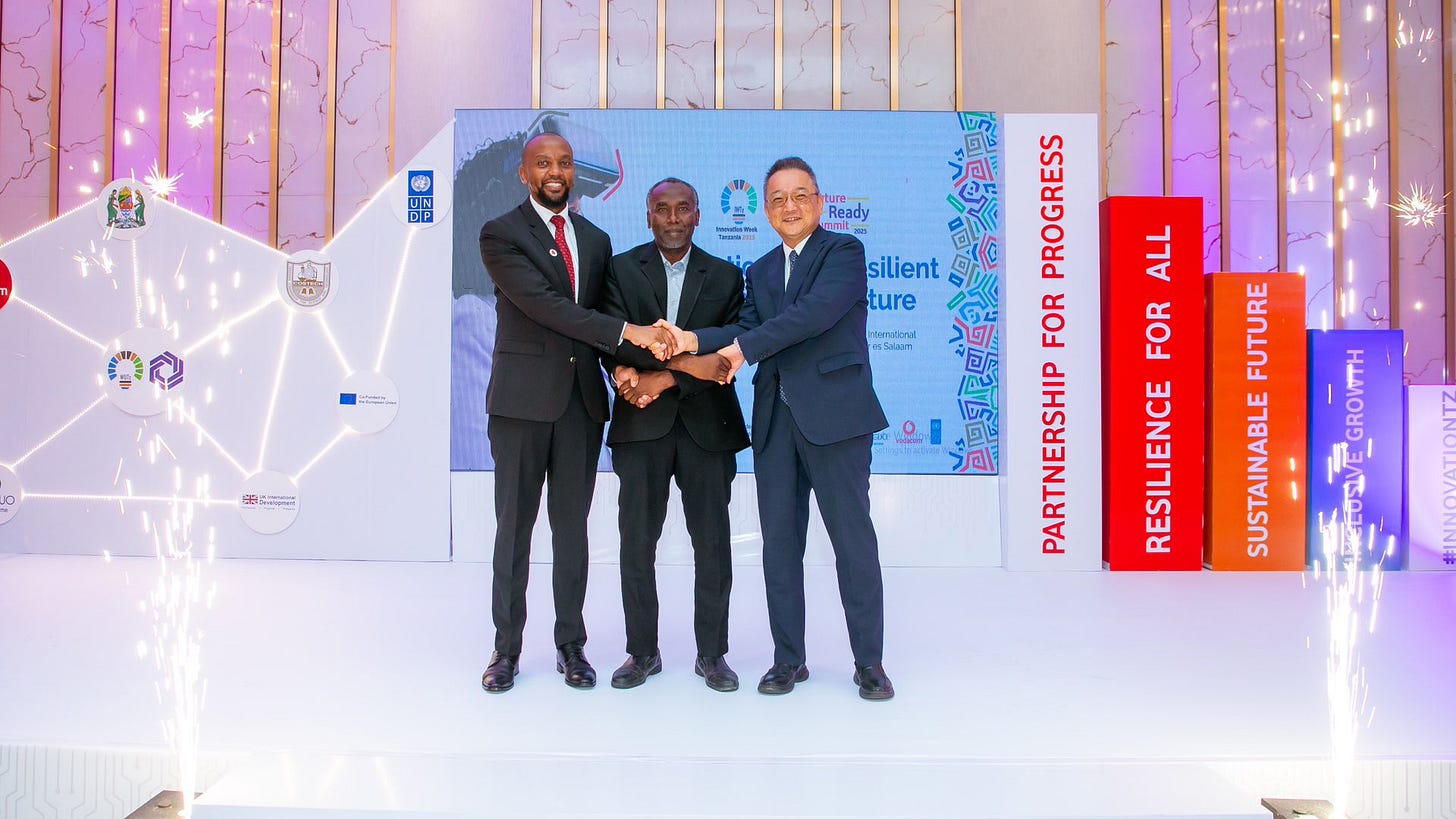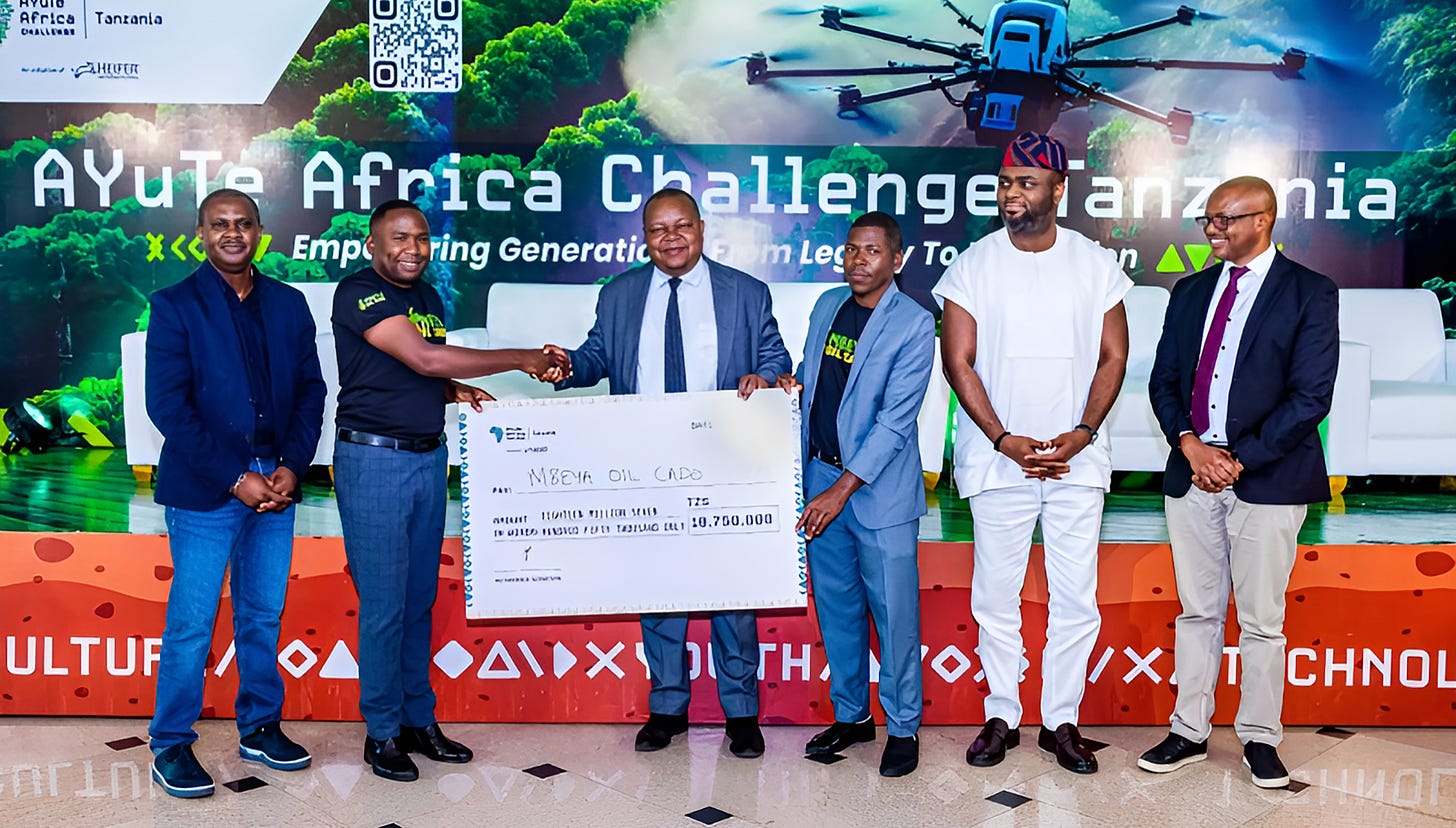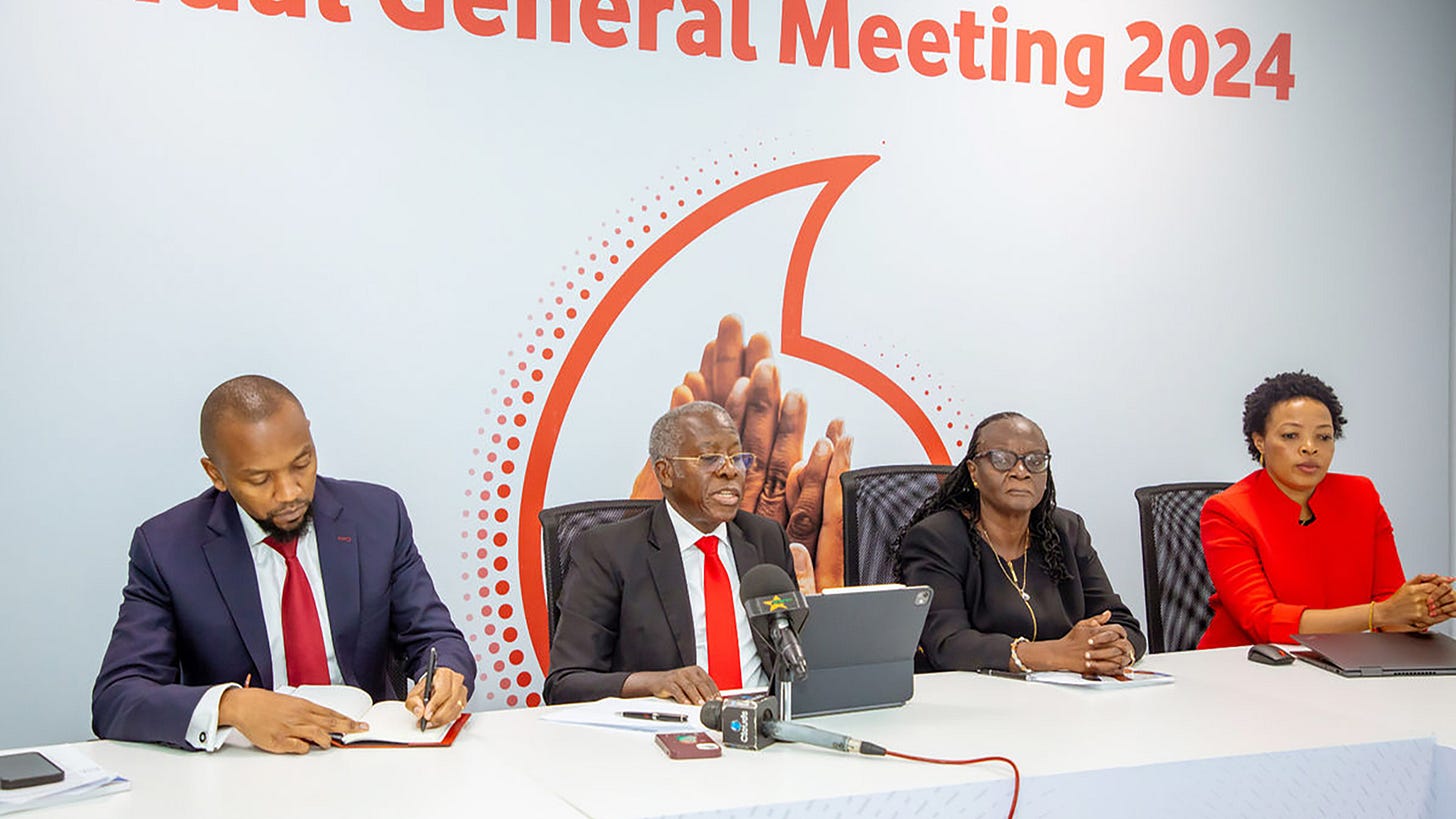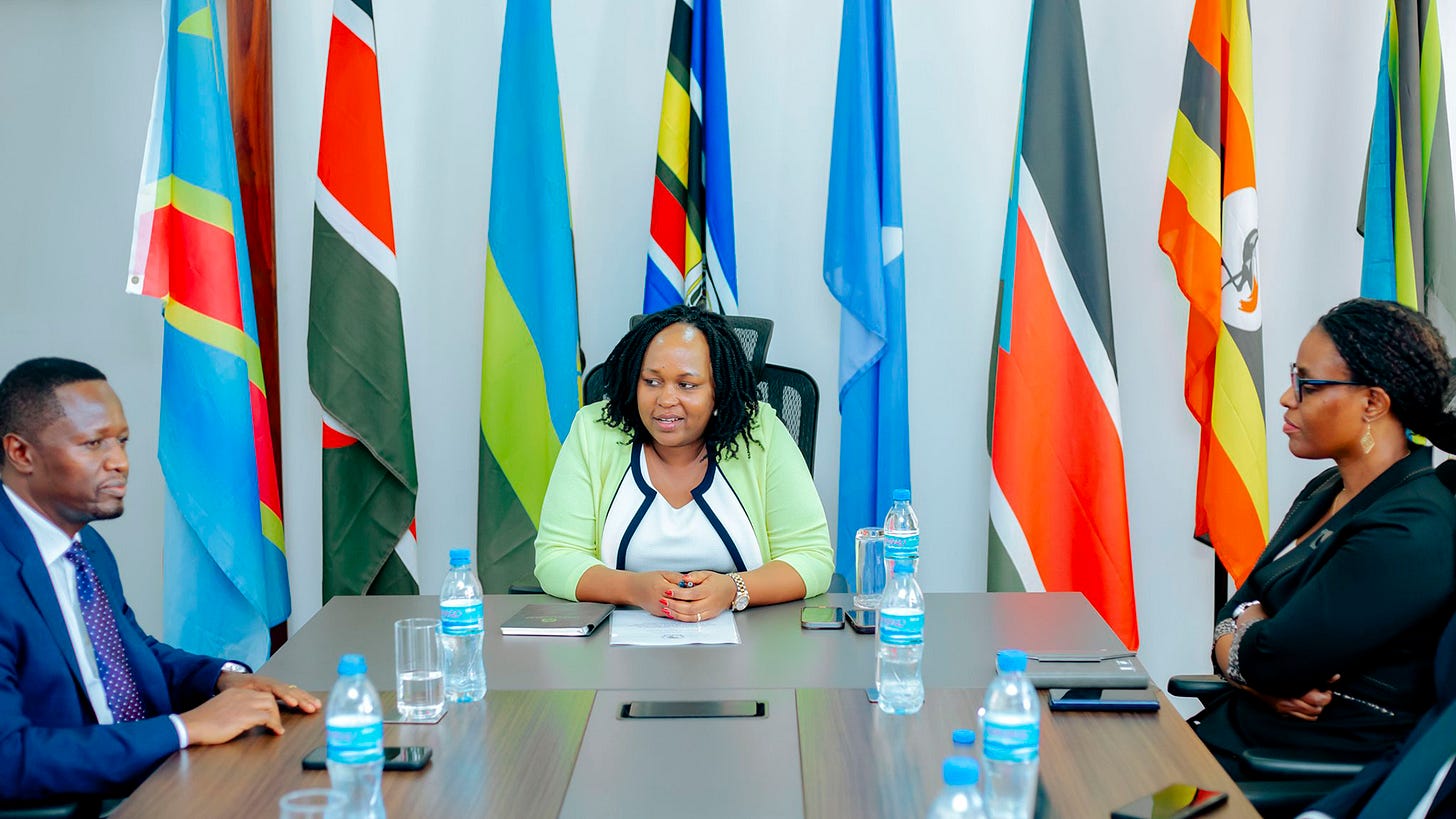Tanzania Hosts Inaugural Power and Electric Technology Exhibition
Tanzania recently hosted its first-ever Power and Electric Technology Exhibition in Dar es Salaam, showcasing advancements in clean energy, modern construction tools, and efficient electrical appliances.
The event, held from Wednesday (Feb 5) to Friday (Feb 7), aimed to promote the adoption of sustainable power solutions and increase awareness of high-quality electric products in the market.
Organized by the Tanzania Renewable Energy Association (TAREA), it brought together manufacturers, policymakers, and industry experts to discuss energy challenges and opportunities in Tanzania. Among the key highlights were cost-effective electric stoves, solar-powered equipment, and electric tricycles designed to improve transportation efficiency while reducing environmental impact.
As Tanzania continues to prioritize renewable energy initiatives, the exhibition served as a platform for networking and collaboration among stakeholders. The government has been actively promoting investments in hydro, solar, and wind energy projects to address electricity shortages and enhance industrial growth.
Participants at the exhibition emphasized the need for increased funding and policy support to scale up clean energy adoption. With rising demand for sustainable solutions, such events play a crucial role in shaping Tanzania's transition toward a greener and more energy-efficient future.
UNDP, Vodacom, and COSTECH Announce Tanzania Innovation Week 2025
The United Nations Development Programme (UNDP) Tanzania, in partnership with Vodacom Tanzania and the Commission for Science and Technology (COSTECH), has announced the Tanzania Innovation Week 2025 (IWTz2025), set to take place from May 12-16, 2025, at the Julius Nyerere International Convention Centre (JNICC) in Dar es Salaam, alongside nationwide activities.
This year's theme, "Innovation for Inclusive and Resilient Development," aims to boost youth employment and promote entrepreneurship through digital innovation.
Phillip Besiimire, CEO of Vodacom Tanzania, highlighted that this collaboration will create global opportunities for innovators and entrepreneurs, positioning Tanzania as a hub for digital transformation.
The event will also feature the Future Ready Summit 2025, focusing on "Transforming Urban Futures: Modernity, Sustainability, and Inclusion."
The summit will delve into critical discussions around urban growth, climate change impacts, and technological advancements.
UNDP Tanzania Resident Representative Shigeki Komatsubara emphasised the event's goal of empowering youth and women through inclusive and resilient innovation ecosystems.
Dr. Athumani Ngumia from COSTECH stressed that the platform will promote collaboration between public and private sectors to advance research and technological development.
Key agenda topics include:
The future of smart and sustainable cities
Empowering youth in the digital era
Advancing research and innovation for business growth
Tanzania Innovation Week 2025 is expected to bring together participants, speakers, and innovators from Tanzania, Africa, and around the globe to exchange knowledge, strengthen partnerships, and spark new ideas for development.
Tanzanian Agritech Startups Triumph in AYuTe Africa Challenge
Several youth-led agritech startups in Tanzania have been recognized as winners in the AYuTe Africa Challenge Tanzania Cohort II, an initiative organized by Heifer International and implemented by Sahara Venture.
The competition received over 260 applications nationwide, showcasing innovations ranging from post-harvest loss solutions and pest management to cost-effective animal feed production and drone technology for soil analysis and fumigation.
Winning startups will collectively receive $22,500 in grant funding to scale their solutions. Heifer International's Country Director, Mark Tsoxo, emphasized that the challenge serves as a catalyst for scaling high-potential agritech startups, empowering young African entrepreneurs to transform smallholder farming through innovation and technology.
This initiative aligns with efforts to address critical challenges in Tanzania's agricultural sector, where smallholder farmers contribute to 80% of the country's agricultural production.
Vodacom Tanzania Reports Sh53 Billion Third Quarter Profit
Tanzania’s leading telco by market share has posted an impressive Sh53.4 billion net profit for the third quarter of the 2024 financial year, marking a 200% increase compared to the same period in 2023. The company attributes this growth to a strong performance in mobile money services (M-Pesa) and a rise in data usage.
Service revenue grew by 20.5%, driven by the increasing adoption of digital financial services and the expansion of 4G and 5G networks. Vodacom’s investment in improving network infrastructure and customer experience has also contributed to its strong financial performance.
Despite economic challenges and competition in the telecommunications sector, Vodacom remains optimistic about future growth. The company continues to introduce innovative products and services tailored to customer needs, such as affordable data plans and enhanced M-Pesa functionalities.
The increase in smartphone penetration and demand for internet services in Tanzania has created new revenue streams for telecom operators. Vodacom’s strong financial results highlight the importance of digital transformation in driving business success. The company plans to sustain its momentum by expanding mobile connectivity and improving financial inclusion efforts.
ICT Commission Encourages Innovators to Utilize NAPA Systems
The Tanzania ICT Commission is calling on local innovators to integrate the National Addressing and Postcode System (NAPA) into their digital solutions to enhance service delivery and innovation. NAPA is designed to provide a structured and standardized addressing system that can be used in various sectors, including e-commerce, logistics, emergency response, and smart city planning.
The commission believes that adopting this system can significantly improve location-based services, increase efficiency, and create new business opportunities within Tanzania's digital ecosystem.
Additionally, the ICT Commission emphasizes that the use of NAPA will enable better government service delivery, ensuring accurate identification of locations for tax collection, security purposes, and infrastructure planning. However, despite its potential, many innovators are yet to fully adopt NAPA due to a lack of awareness and technical challenges.
The commission is therefore working on initiatives to promote the system's benefits and provide necessary training for developers and businesses. This push aligns with Tanzania's broader strategy to enhance digital transformation and economic growth.
Surge in Malware Targeting Password Stores
A recent analysis by Picus Security has revealed a threefold increase in malware attacks targeting password stores in 2024. The study, which examined over one million malware samples, found that 25% of these malicious programs aimed to extract credentials from password managers—a significant rise from the previous year.
Notably, this method has entered the top 10 techniques in the MITRE ATT&CK Framework for the first time. The report highlights the evolution of malware into more complex, multi-stage threats, referred to as "SneakThief" by researchers. These advanced malware strains perform an average of 14 malicious actions, including evading defenses, escalating privileges, and exfiltrating data.
This rising cyber threat is particularly concerning as digital banking, mobile money services, and e-commerce platforms become increasingly common even in Tanzania. With many users relying on password managers to store sensitive financial information, an attack on these systems could lead to identity theft, unauthorized transactions, and financial losses.
Small businesses and startups, which often have limited cybersecurity measures, are also at risk. To enhance digital security, individuals and businesses in Tanzania must prioritize multi-factor authentication, cybersecurity education, and regular software updates to protect against evolving malware threats.
EAC Urged to Embrace AI for Streamlining Customs Procedures
The East African Community (EAC) Secretary-General, Ms. Veronica Nduva, has called upon customs authorities within member states to adopt advanced technologies, including artificial intelligence (AI), to enhance customs procedures.
Speaking at the International Customs Day event in Arusha, Ms. Nduva emphasized that integrating AI could improve efficiency and help combat illicit trade in the region.
She also highlighted the importance of simplifying customs processes to make them more accessible to stakeholders and the public. The EAC's customs initiatives, such as the elimination of intra-regional tariffs and the implementation of a Common External Tariff, have already facilitated the free movement of goods and bolstered economic cooperation among partner states.
The adoption of AI is seen as a further step toward modernizing customs operations and promoting regional integration.
The Importance of Smart Education Systems in Tanzania's Digital Economy
As Tanzania moves toward a more digitized economy, experts emphasize the critical need for smart education systems to bridge the gap between technological advancements and workforce readiness. Digital tools such as e-learning platforms, virtual classrooms, and AI-driven educational resources have the potential to transform the country's education sector, making learning more accessible and interactive.
Smart education systems can also provide students with real-time feedback, personalized learning experiences, and exposure to digital skills required in modern industries. However, challenges such as inadequate internet connectivity, high costs of digital devices, and limited ICT literacy among teachers remain significant obstacles.
To overcome these barriers, the government and private sector are investing in initiatives that promote digital literacy and infrastructure development. The expansion of fiber-optic networks and mobile connectivity in rural areas is expected to increase access to online education resources.
Additionally, training programs for educators and students on the use of digital tools are being introduced to ensure the effective implementation of smart education systems. By integrating these technologies into schools and universities, Tanzania can equip its youth with the skills needed to thrive in an increasingly digital global economy.
Google to Feature Gemini AI in Super Bowl Ads
Google has announced that its latest artificial intelligence model, Gemini, will be featured in a series of advertisements during the Super Bowl. The tech giant aims to highlight Gemini's advanced capabilities, including its ability to process multimodal inputs—such as text, images, and audio—more efficiently than previous AI models.
Super Bowl commercials are among the most-watched advertisements globally, making them a prime opportunity for Google to introduce its AI system to a wider audience. The campaign is expected to showcase Gemini's potential in revolutionizing productivity, creative tasks, and everyday digital interactions.
This development also presents new opportunities for Tanzanian businesses, developers, and startups to leverage advanced AI tools for innovation in education, finance, and creative industries.
With increasing competition in the AI space, Google is positioning Gemini as a rival to OpenAI's ChatGPT and other leading AI models. The Super Bowl ad campaign will likely serve as a strategic move to boost public interest and confidence in AI-powered tools.
As AI adoption grows, Tanzania has the potential to benefit by integrating AI-driven solutions into its digital economy, fostering skills development and innovation. While AI integration continues to expand into business, education, and entertainment sectors, ethical concerns and the responsible use of AI remain key discussion points. Google is expected to address some of these considerations in its broader rollout strategy, ensuring that AI development aligns with user safety and transparency.
OpenAI Partners with South Korea's Kakao to Develop AI Products
OpenAI has announced a partnership with South Korean tech company Kakao to jointly develop artificial intelligence products tailored for the South Korean market. Kakao, known for its dominant messaging app KakaoTalk, plans to integrate OpenAI's technology into its services, aiming to enhance user experiences across its platform.
This collaboration follows OpenAI's recent partnership with Japan's SoftBank and discussions with Samsung, highlighting the company's strategic expansion into the Asian market. OpenAI CEO Sam Altman noted that South Korea's robust energy, semiconductor, and internet sectors make it a significant market for AI product development.
The partnership with Kakao is expected to leverage these strengths to create innovative AI-driven solutions for various applications.
PayPal's Profit Forecast Overshadowed by Margin Contraction
PayPal has projected a strong profit outlook for 2025, anticipating adjusted earnings per share between $4.95 and $5.10, surpassing Wall Street expectations. This optimistic forecast is attributed to the company's strategic focus on high-margin products and cost-cutting measures under CEO Alex Chriss. However, the fourth quarter revealed a contraction in adjusted operating margins by 34 basis points to 18%, raising concerns about the pace of recovery.
The company's unbranded payment processing segment experienced a significant slowdown, with total payment volume growth declining to 2% from 29% the previous year.
This deceleration is linked to PayPal's shift towards more profitable ventures, which has led to the loss of some customers in the unbranded segment. Despite these challenges, PayPal reported a 4% increase in net revenue, reaching $8.4 billion in the fourth quarter, and a 7% rise in total payment volume.
It's important to note that while PayPal operates in Tanzania, the option to receive PayPal payments is currently not available. Users can only send payments for purchases funded by a confirmed credit card. This limitation means that Tanzanian residents cannot use PayPal for receiving payments, which could affect their ability to engage in international business transactions.
China Initiates Anti-Monopoly Probe into Google Amid Escalating Trade Tensions
In response to new U.S. tariffs on Chinese goods, China's State Administration for Market Regulation has launched an anti-monopoly investigation into Google. The regulator suspects Google of violating China's antimonopoly laws, though specific details of the allegations have not been disclosed.
This move is part of a broader set of measures targeting U.S. businesses, including tariffs on American products such as coal, oil, and certain automobiles. Additionally, China's Commerce Ministry has added PVH Corp, the parent company of brands like Calvin Klein and Tommy Hilfiger, and U.S. biotechnology firm Illumina to its "unreliable entity" list.
This designation subjects these companies to potential fines and sanctions, including trade restrictions and revocation of work permits for foreign staff. These actions underscore the escalating trade tensions between the world's two largest economies.
China's retaliatory measures could affect the availability and pricing of certain goods imported from the U.S., potentially leading to higher costs for consumers and businesses in African countries, including Tanzania.
Moreover, the global economic uncertainty stemming from these trade tensions might impact investment flows and economic partnerships involving Tanzanian enterprises.



